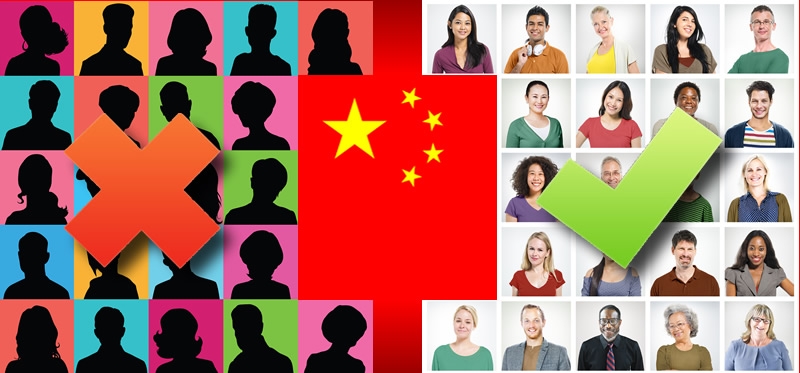Nicknames and made-up names are becoming a thing of the past in China: No more fake Putins, Obamas or Financial Times columnists. No more anonymous bloggers. From pop-stars to politicians, and everyone in between, from 1st March 2015 Chinese users have had to provide their real, full names when signing in to forums and social networks.
It’s a real challenge for social network operators – they now need to find out about the personalities hiding behind the dubious avatars. There are around 650 million internet users in China, yet there are over 2 billion different registered online accounts. 60,000 accounts have already been blocked by providers, as they were considered not to be compliant with the new account username and personal identity disclosure rules issued by the Cyberspace Administration of China.
“Fake accounts pollute the Internet environment and will be blocked,” the government office said in a recent statement.
The new regulations affect anyone who writes a blog or even just posts forum comments – as well as users of social networks such as Weibo and instant messaging tools like WeChat, QQ and Skype.
What You Can’t Say In China
The following things are prohibited, either in the account name or in the content body:
- Anything that undermines the constitution,
- Rumours, insinuations and aspersions,
- Pornography,
- Terrorism,
- Anything that encourages discrimination,
- Anything that goes against religion.
Some actions have already taken place over the last few years in China in an attempt to cleanse the virtual space of anonymous users. For example, many internet cafes in Beijing request that visitors present their passport before they are allowed to go online. Also, a passport number is required to register on many social networks.
%GC_SERVICE=1003%
The Impact of Social Media Growth
Modern cyberspace, not least due to social networks, enables everyone to express their thoughts and ideas – even if they are malicious or untrue, which of course can be damaging to the wellbeing or welfare of people, and disruptive for society in general and many governments have taken actions to protect their citizens from online abuse. Last year, China made it a criminal offence to broadcast any defamation online and a perpetrator can face up to 3 years imprisonment, if the false information has been viewed by 5,000 people or re-posted 500 times.
Censors are overseeing what has been published in blogs and forums, and if any subjects which are censored in China, such as Tibet, are mentioned, the account may be blocked. Many bloggers feel that the recent tighter controls restrict them and are abandoning their blogs, but the authorities continue to maintain that the new rules protect the users, and don’t infringe their rights.
The internet is a very powerful tool, yet its power isn’t always positive. Last summer, the official press agency Xinhua had to disprove internet-spread rumours that Ebola fever was turning people into zombies. Thousands of re-posts and hysterical discussions affected people so much, that when, for example, an foreigner fainted in a hot and stuffy carriage on the Shanghai underground, all fellow passengers ran away in panic without any attempt to offer first aid.
China is an attractive market for businesses looking to expand to new markets, but this latest legislation shows the importance of understanding local regulations and guidelines when developing an online strategy and ensuring that every action you take will comply with local rules and be appropriate for the intended audience.









